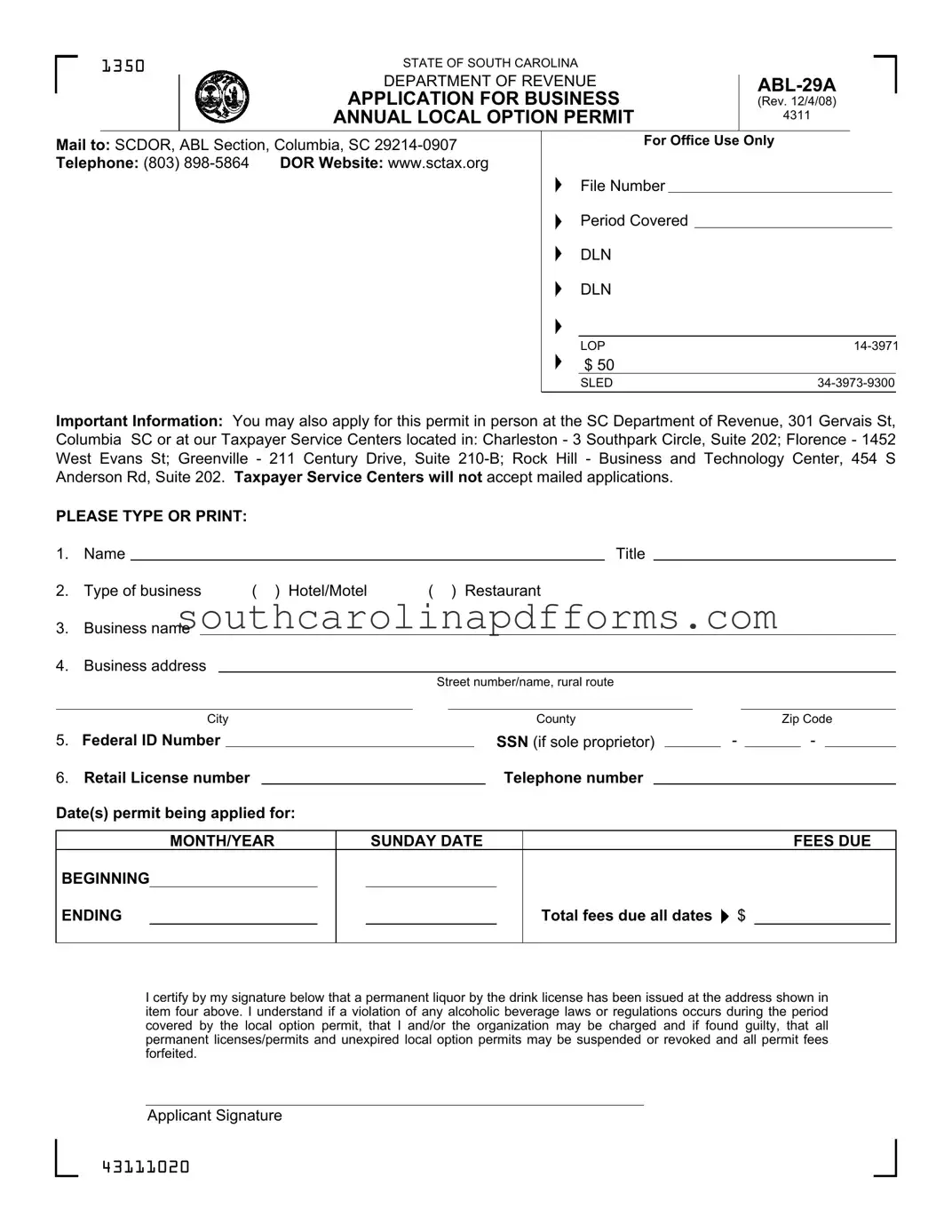The ABL 29A form is a crucial document for businesses in South Carolina seeking to obtain a Local Option Permit, allowing them to serve alcoholic beverages during specific hours on Sundays. This application is primarily intended for food establishments that already possess a permanent liquor by the drink license and a beer/wine permit. It enables these establishments to operate and sell alcoholic drinks during restricted hours, specifically from midnight to 2:00 a.m. on Sundays and from 10:00 a.m. to midnight on Mondays. To apply, businesses must submit the form along with a nonrefundable fee of $3,050, which covers an annual 52-week period. If the current liquor license is set to expire before the full year is completed, the fee will be prorated accordingly. The form requires detailed information about the business, including its name, address, and federal ID number, as well as a certification that a permanent liquor license has been issued for the location. Additionally, applicants must verify their lawful presence in the United States, providing necessary documentation to ensure compliance with state laws. Understanding the requirements and implications of the ABL 29A form is essential for any business aiming to navigate the complexities of alcohol licensing in South Carolina.
